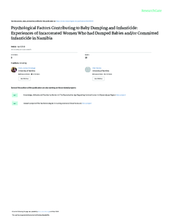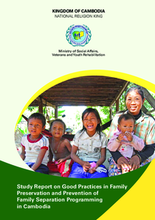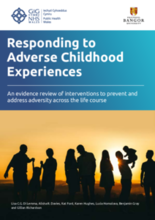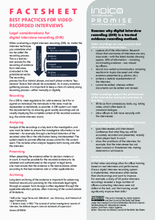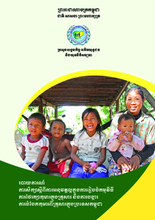Displaying 341 - 350 of 1050
This evidence and gap map will provide an overview of the existing systematic reviews and impact evaluations on the key outcome domains and interventions aimed at reducing violence against children in LMICs using an intervention-outcome framework.
The purpose of this study was to explore and describe the experiences of incarcerated women who had dumped or committed infanticide in Namibia.
The purpose of this article is to use the authors' experiences litigating physical abuse cases in the Bronx, New York City, USA to provide practitioners and family defenders both in New York and in other states with ideas and strategies of how to move cases forward for parents and caretakers charged with serious physical abuse of a child. It is our hope that, by challenging these allegations, defense attorneys can expose the misperceptions and overreach of agencies that charge parents with physical abuse based on injuries alone.
The objectives of the study are: 1) Identifying and classifying the level of child presence and the needs of children in the family and 2) implementation of integrated child protection models in families in integrated areas of West Timor.
This report provides in-depth analysis of programs of 7 different NGOs in Cambodia working on the prevention of family separation and family preservation in order to respond to risks related to physical and mental well-being and domestic violence.
This module is the second part of the Parenting without Violence Bronze Course. It focuses on the course's second learning outcome by sharing more about HOW Parenting without Violence works.
Sri Lanka's National Policy on the Alternative Care of Children outlines a comprehensive range of alternative care options and encourages the reforming of all formal structures that provide at-home and out-of-home services for children deprived of care and protection or at risk of being so. This policy also extends to children under care of the Juvenile Justice System. It provides policy solutions to programming for children at risk of family separation and facing deprivations such as child abuse, neglect, child labor, poverty, addiction, imprisonment, human trafficking, mental and physical disabilities, HIV/AIDS, domestic violence, orphanhood, abandonment and displacement etc. The policy also takes into consideration and encompasses provisions to children who are forced to live and work on streets.
To support innovation in addressing adverse childhood experiences (ACEs), the authors have undertaken a review of evidence on common approaches to prevent ACEs and/or mitigate their negative impacts in Wales.
This factsheet reviews best practices for conducting a digital interview recording (DIR) with children who have experienced or witnessed violence.
This report (in Khmer) provides in-depth analysis of programs of 7 different NGOs in Cambodia working on the prevention of family separation and family preservation in order to respond to risks related to physical and mental well-being and domestic violence.


